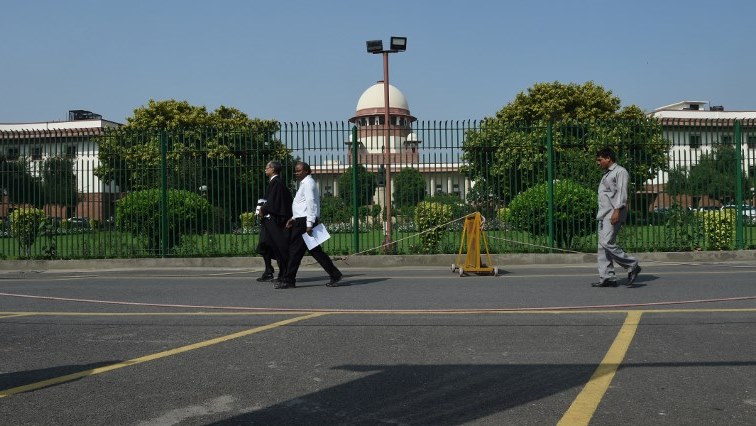Adultery is no longer a crime, India’s top court ruled Thursday, declaring a colonial-era law that punished the offence with jail time unconstitutional and discriminatory against women.
It was the second legal decision this month reflecting a more liberal outlook in Indian society with the Supreme Court having on September 6 scrapped a ban on gay sex dating back to 1861.
Sparking celebrations, the court argued that Section 377 on homosexuality had become “a weapon for harassment” of homosexuals and “history owes an apology to the members of this community and their families”.
The more than century-old adultery law prescribed that any man who slept with a married woman without her husband’s permission had committed adultery, a crime carrying a five-year prison term in the conservative country.
A petitioner, an Indian businessman, had challenged the court to strike down the law, describing it as arbitrary and discriminatory against women.
“Thinking of adultery from a point of view of criminality is a retrograde step,” unanimously declared the five-judge bench of the Supreme Court.
Women could not file a complaint under the archaic law nor be held liable for adultery themselves, making it solely the realm of men.
The court said it deprived women of dignity and individual choice and “gives license to the husband to use women as a chattel”.
“It disregards the sexual autonomy which every woman possesses and denies agency to a woman in a matrimonial tie,” said Supreme Court Justice D. Y. Chandrachud.
“She is subjugated to the will of her spouse.”
Convictions for adultery are very rare because of the social stigma, and mostly families resolve matters among themselves, Supreme Court lawyer Utsav Bains told AFP.
“For a man to be convicted for adultery is very rare because the crime has to be proved conclusively beyond doubt in the court. And it is very difficult to do that,” Bains said.
But in one case in 2015, a 50-year-old policeman was jailed after he was caught in bed with the wife of another man.
The husband locked the couple in a room and called the police.
Government lawyers argued that adultery should remain a crime as it threatens the institution of marriage, and caused harm to children and families.
But in its ruling, the court said extramarital affairs — while still a valid ground for divorce — were a private matter between adults.
Prashant Bhushan, a lawyer in the Supreme Court, said the watershed decisions on gay sex and adultery had shown the judges’ “adherence to liberal values and the constitution”.
“Another fine judgement by the SC,” he tweeted after Thursday’s ruling.
But the head of the government’s Delhi Commission for Women said instead of making adultery a crime for both genders, the ruling effectively condoned cheating.
“How can that be allowed? What is the sanctity of marriage?” Swati Maliwal, the high-profile commission chairwoman, told reporters in New Delhi.
“In a way, it is very anti-women.”
In 1954, the court upheld adultery as a crime arguing “it is commonly accepted that it is the man who is the seducer, and not the woman”.
But in their ruling on Thursday, the judges said this narrative no longer applied, noting also that Britain did away with its own laws penalising adultery long ago.
“Man being the seducer and women being the victim no longer exits. Equality is the governing principle of a system. Husband is not the master of the wife,” the verdict added.
Adultery remains illegal in many countries around the world, including in 20 US states, and in countries with Islamic law such as Iran and Saudi Arabia.
In Pakistan, it is punishable by up to 25 years in prison while in Bangladesh — both formerly part of British India — men, but not women, can be jailed for five years.
In Somalia, Islamist Shabaab militants often carry out stonings of women for adultery. Some northern states in Nigeria practise capital punishment for adultery, rape and homosexuality.
In Indonesia’s staunchly-Islamic Aceh province, men and women found guilty of adultery can be whipped 100 times with a thin rattan cane in public.
In 2015, South Korea’s Constitutional Court struck down an adultery law, sending shares in condom maker Unidus soaring.






